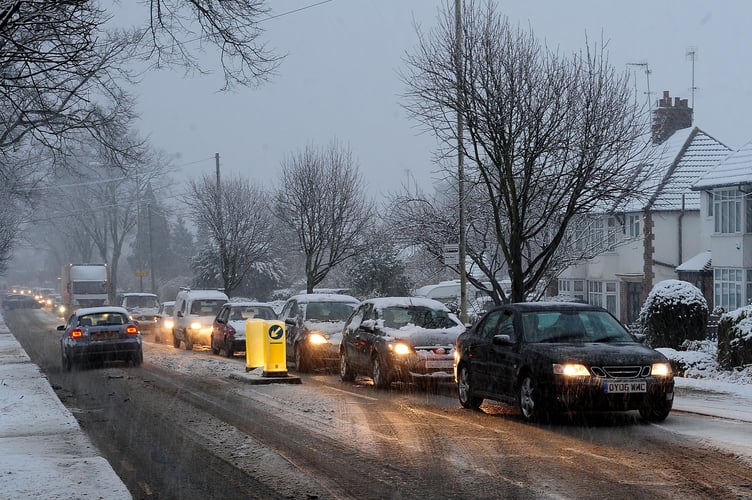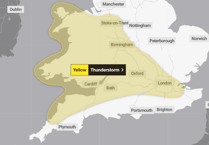January was the most common month of the year for injuries from collisions on icy roads between 2019 and 2023, new analysis shows.
A road safety charity has issued a warning for drivers to stay safe amid freezing conditions.
Analysis of data from the Department for Transport show Avon and Somerset Constabulary recorded 267 casualties from collisions where there was ice or frost on the road between 2019 and 2023.
Over five years, January was the worst month of the year for casualties, with an average of 36 injuries each month.
There were 132 casualties on frozen roads in Avon and Somerset across the whole of 2023, the most recent year of data.
'Snowy' conditions are recorded separately – Avon and Somerset saw 19 casualties on snowy roads between 2019 and 2023.
These figures are from police records of conditions at the scene of collisions – the road surface may not have been the main cause of the crash. However, slippery roads can increase braking distances and worsen manoeuvrability, making accidents more likely.
Alice Simpson, breakdown spokesperson for the RAC, said it is "vital" drivers don't underestimate the risks of poor road conditions.
She said low temperatures also increase the chance of a breakdown, so drivers should bring appropriate clothing and footwear, hot drinks and power banks.
Across Britain there were 1,936 casualties on icy roads in 2023, 18 of them fatal. From 2018 to 2023 there were 8,226 casualties and 80 fatalities, although none of these were in Avon and Somerset.
Nationally, January was also the worst month, with an average of 671 casualties each year.
Luca Straker, campaigns manager at Brake, a road safety charity, cautioned against driving in bad weather.
"Never set off when it's snowing heavily or if it’s forecast to snow, and avoid driving if you possibly can in other bad conditions like fog, heavy rain and ice," he said.
If you have to drive in cold weather, Brake recommends to:
- Use the highest gear possible to avoid wheel spin, taking care not to let your speed creep up.
- Brake gently to avoid locking the wheels, and get into a low gear earlier than normal and allow the speed of the vehicle to fall gradually.
- Take corners very slowly and steer gently and steadily to avoid skidding. Never brake if the vehicle skids. Instead, ease off the accelerator and steer slightly into the direction of the skid until you gain control.
- If stuck in snow, do not spin the wheels or rev the vehicle, as this will dig the vehicle further in. Instead, put the vehicle into as high a gear as possible and slowly manoeuvre the vehicle lightly forwards and backwards to gently creep out.
- If you are stuck fast, stay in the vehicle unless help is visible within 100 yards. Do not abandon your vehicle as this can hold up rescue vehicles.
A DfT spokesperson said: "Our roads are among the safest in the world, but we are committed to improving road safety. That’s why we have invested £185.8 million through the safer roads fund to make improvements on the country’s most high-risk A roads.
"We engage regularly with local authorities in England each year to ensure they are sufficiently prepared for the winter weather."




